Elevating Hospitality Excellence in Ghana: Diving into Lancaster Accra Hotel’s Growth and Transformation
Embark on a journey into the heart of Ghana’s thriving hospitality scene with our exclusive interview featuring Stéphane Robert, the General Manager of Lancaster Accra Hotel. Delve into the rich tapestry of Ghana’s tourism and hospitality sectors as the interview explores the country’s historical allure, business opportunities, and Lancaster’s strategic vision for the future.
Interview with Stéphane Robert, General Manager of Lancaster Accra Hotel
Could you provide an evaluation of the tourism and hospitality sectors in Ghana? What is your overall assessment of the industry, and could you highlight any prevailing trends?
Ghana presents a significant opportunity in the tourism sector, given its rich heritage and abundant resources, particularly in ecotourism. The country’s historical significance, unfortunately tied to the slave trade, has led to a global interest in organized tours, attracting visitors eager to explore and enhance their cultural heritage. Ghana offers diverse experiences, from the northern to the southern regions, including destinations like Kumasi near the mines, formerly known as the Gold Coast.
The stability of the country plays a crucial role in making Ghana an attractive destination. The historical context, combined with the country’s stability, provides a unique appeal to tourists. Notably, Accra serves as a hub for West Africa, ensuring that visitors, whether for business or pleasure, find comprehensive support and amenities. Overall, Ghana’s tourism and hospitality sectors benefit from a blend of cultural richness, historical significance, and the country’s strategic positioning in the region.
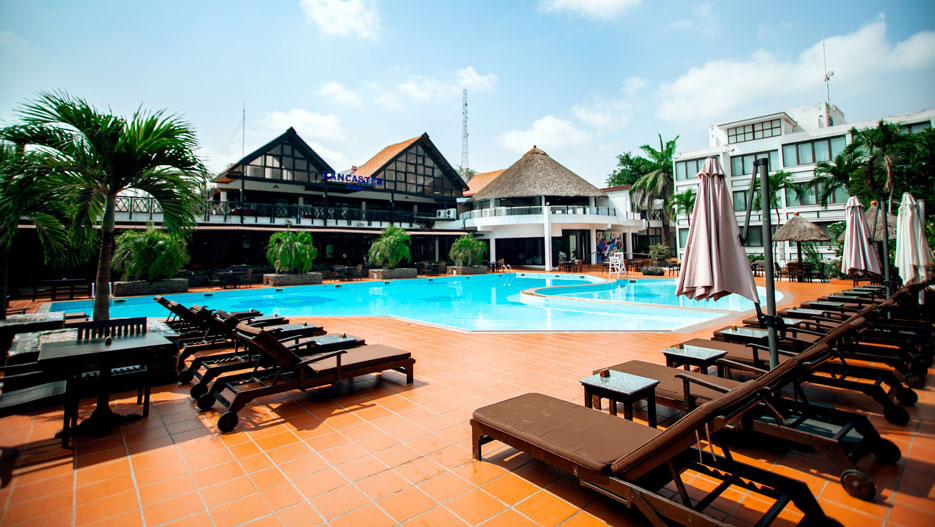
There seem to be numerous opportunities in both the tourism and business tourism sectors. What is your take on the current landscape of the hotel industry here? Are there too many hotels, or do we face a shortage? How competitive is the environment?
Our location is downtown, close to the airport, markets, and the conference fair. I would say we have not reached a point where there are too many hotels; there is still room for growth and business expansion. While the market is not entirely untapped, there is potential for improvement. We receive numerous requests for events and banquets within the sector, prompting our involvement in a substantial project. There are undiscovered opportunities, and I believe this growing business marks just the beginning of a more robust hospitality industry in Ghana.
As for Kumasi, where we also have hotels, the recent opening of an international airport signals significant growth. With only two hotels presently, it is unlikely that this number will remain static over the next five years. International companies, in general, are keen on investing, developing, and expanding their presence. As we transition from Golden Tulip to Lancaster, we are committed to supporting and enhancing our market share in response to these evolving opportunities.
Could you provide insights into the ongoing renovations? We have observed significant changes from the former Golden Tulip, and it seems like there is a lot in progress.
Our overarching plan is to transition from a four-star establishment to a five-star one. We have kick-started renovations in various areas, starting with the public spaces – such as the lobby, entrance, and restaurant. The refurbishment of the rooms is well underway, and two out of the three wings have already been completed. We have refreshed everything, from the carpets to partially updating the furniture and changing the beds, including new mattresses.
In the next phase, we are focusing on transforming into a modern conference center. While the hotel accommodated events with a seating capacity of 120 in the 60s and 70s, the current demand is for more extensive gatherings. For instance, weddings now typically involve a minimum of 150 guests. To meet this demand and elevate both guest experiences and business opportunities, we are constructing a state-of-the-art facility. The main ballroom will have a capacity for around 700 people, spanning the ground floor and the first floor, with the main ballroom accommodating 350 people and additional facilities on both floors for a total capacity of 700 people.
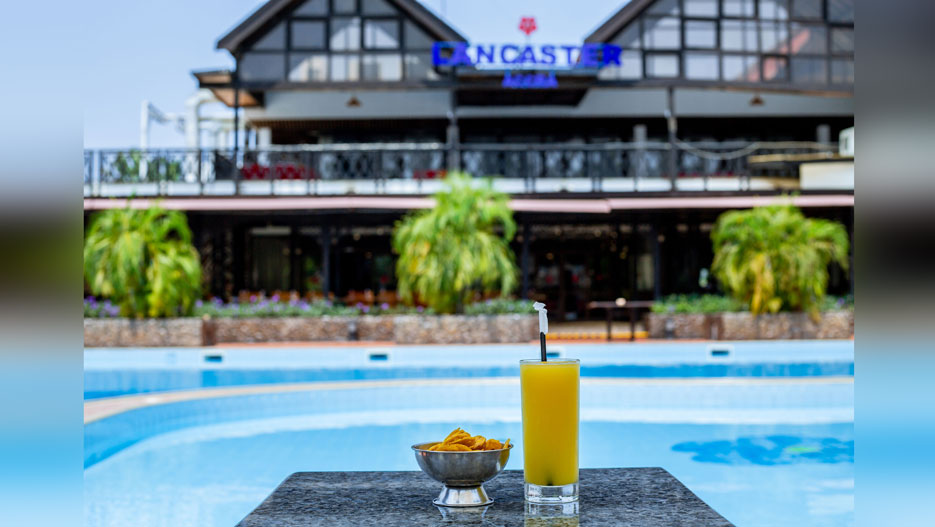
What is the purpose of the new event space? Is it mainly for private events like weddings, or is there also a focus on business functions?
Being situated downtown and in proximity to business centers, we have a unique opportunity to cater to a variety of events. This ballroom is not limited to private parties; it serves a dual purpose by providing a venue for business activities such as product launches, meetings, and conference calls. We are equipped with all the necessary technology to facilitate global conference calls, a feature that has become increasingly relevant since the advent of COVID-19. In essence, it is a versatile space open to a wide range of events. For private parties, we are already accepting bookings for groups of 10 to 15 people, and we have the capacity to accommodate up to 4000 people for outside catering.
How would you describe the food and beverage offerings? What sets you apart in this aspect?
This hotel is renowned for its iconic team lunch, the Sunday brunch, which is widely recognized by Ghanaians. Over the years, this brunch has become a tradition, featuring a live band and a spread of delicacies from various parts of Ghana. We offer diverse dishes, including grass cutter soup, crab, and more. Every Sunday, we cater to approximately 400 guests, making it one of our highly successful recurring events. Additionally, we host themed nights; Fridays feature barbecue, and Saturdays showcase a variety of cuisines, ranging from Mediterranean and African to Indonesian. These culinary offerings contribute to the diverse and vibrant dining experiences we provide at the hotel.
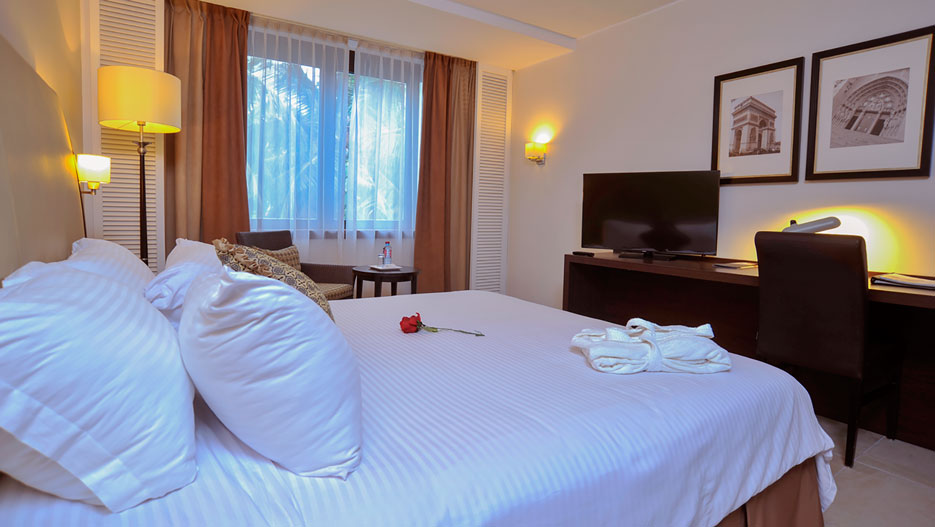
Regarding the externalization of catering that you mentioned earlier, could you provide more details on how this works when people want to host events outside the hotel?
We have two sizable trucks specifically designated for external catering. This service caters to a range of events, from small gatherings like a 10 or 12-person party in your company to business lunches, cocktails, private parties, conferences, and even events at ministries. The scale is quite flexible; for instance, a few months back, we successfully handled external catering for 4000 people over five days.
When dealing with such large-scale catering, there is a meticulous logistics process involved. For instance, when serving 4000 meals, our kitchen operates with three teams doing eight-hour shifts to ensure timely preparation. We coordinate with suppliers to receive ingredients earlier than the usual 6 am, starting at 4 am. Additionally, we prioritize the well-being of our staff, ensuring they are not overworked and arranging accommodations for the five-day event. It is about making sure they are well-fed and rested so they can deliver exceptional service.
Our external catering service is personalized to meet the needs of our clients. We flow with the guests, providing exactly what they have ordered each day, on time, and ensuring the food is served at the right temperature – hot if it is meant to be hot, and cold if it is meant to be cold. We employ specific measures, such as insulated containers for cold items, to minimize any disruptions between the kitchen and the event venue or our clients’ homes. Our commitment is rooted in delivering outstanding service and an exceptional guest experience that aligns with their unique requirements.
Lancaster is not a standalone hotel; it is part of a group. Could you shed some light on this group?
Lancaster is a part of the larger Achour Holdings Group, headquartered in Beirut, Lebanon. The group initiated its first hotel, Lancaster Hotel, in Beirut in 2008. Currently, Achour Holdings oversees nine hotels, with a presence in various locations, including five in Beirut, one in Burkina Faso, one in Congo, and the two recently added hotels that are now part of the international brand in Ghana.
Their strategic goal is to extend their development efforts beyond Ghana and Lebanon. Currently, they are actively exploring potential properties in other countries. As part of this expansion, they have recently acquired a hotel, operating under a joint venture. This collaboration involves the former company and the new entity, and it is structured as a lease arrangement. This means they are both paying rent for the property and engaging in simultaneous refurbishments to enhance its overall appeal.
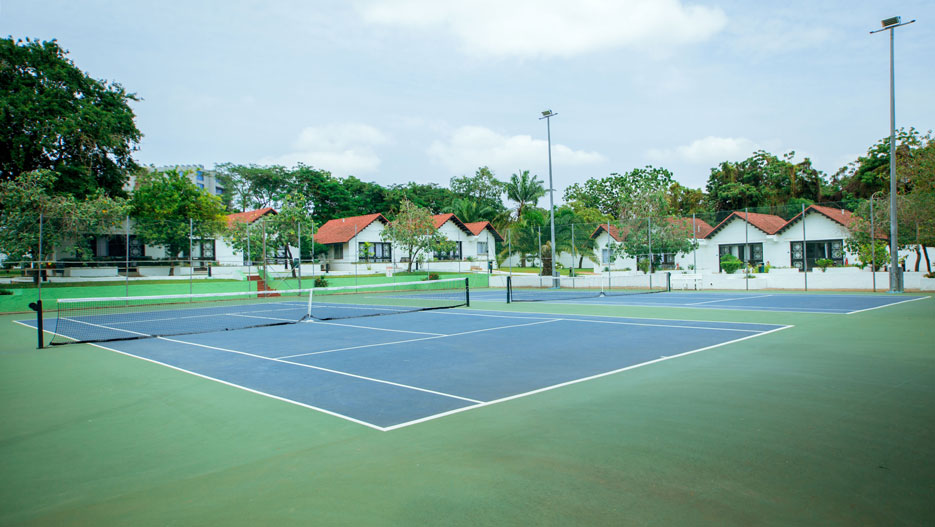
Let’s discuss the corporate social responsibility (CSR) aspect. How does Lancaster contribute to the development of the country or the city?
We actively engage in corporate social responsibility initiatives. One significant aspect is our support for orphanages, involving regular donations each year. Additionally, we organize tennis tournaments, not only for the players but also as an investment in the local community. The hotel invests in various ways to uplift the community.
In my view, the country could enhance its social responsibility by further involvement, particularly in agriculture. By focusing on growing local products instead of importing, we can create more jobs within Ghana. Utilizing the existing agricultural skills can lead to increased employment opportunities for the local community, ultimately benefiting everyone.
Looking at the medium term, what is your vision for Lancaster Accra Hotel?
If our plans align as anticipated and we stay on course, we are actively working towards the vision of elevating this hotel to a five-star status. We have committed to this vision, involving both our guests and our staff, and communicating this goal to our shareholders. In less than three years, we aim to transform this hotel into a five-star establishment. The ownership has a project in place to secure the necessary resources for this upgrade, enhancing recreational and leisure facilities to elevate the overall guest experience. Meeting guest needs is fundamental, and we understand this involves continuous training. We have a dedicated training and development manager focusing on on-the-job training to strengthen our staff. Clear policies and standard operating procedures (SOPs) are in place, providing guidance for everyone to understand and follow. This structured approach helps build a robust and capable team. Our ultimate goal is to develop our staff, ensuring everyone operates at their best and addressing any weaknesses collectively to bring the entire team to a higher standard.
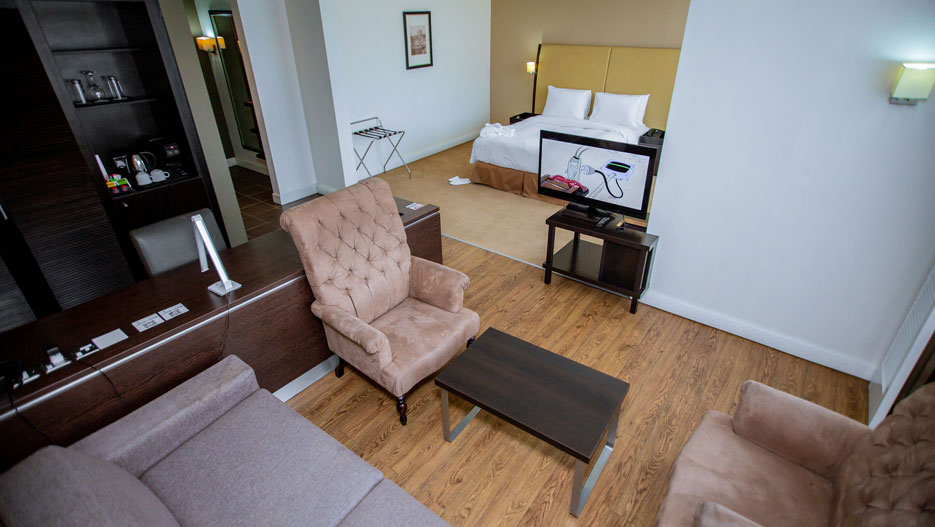
Given your extensive experience in hospitality services, we are curious to understand what drives you. What inspires you to wake up every morning and pursue your endeavors?
Passion is at the core of it all. Back when I attended catering school in France over 30 years ago, it was observed that a significant number of individuals dropped out of the hospitality business. However, my passion has kept me going. I genuinely enjoy what I do – my love for hotels, appreciation of good food, and the desire to not just develop individuals but to leave a legacy for future generations.
During early years of career, about 20 years ago, my wife became a significant source of inspiration. She encouraged me to aim higher and strive for continuous improvement. Loyalty is a core value for me, both personally and professionally. I am committed to the success of the company, and I firmly reject any unethical practices. This philosophy, coupled with the support and encouragement from my wife, has driven me to achieve levels I never thought possible.
FAIR USE POLICY
This material (including media content) may not be published, broadcasted, rewritten, or redistributed. However, linking directly to the page (including the source, i.e. Marcopolis.net) is permitted and encouraged.